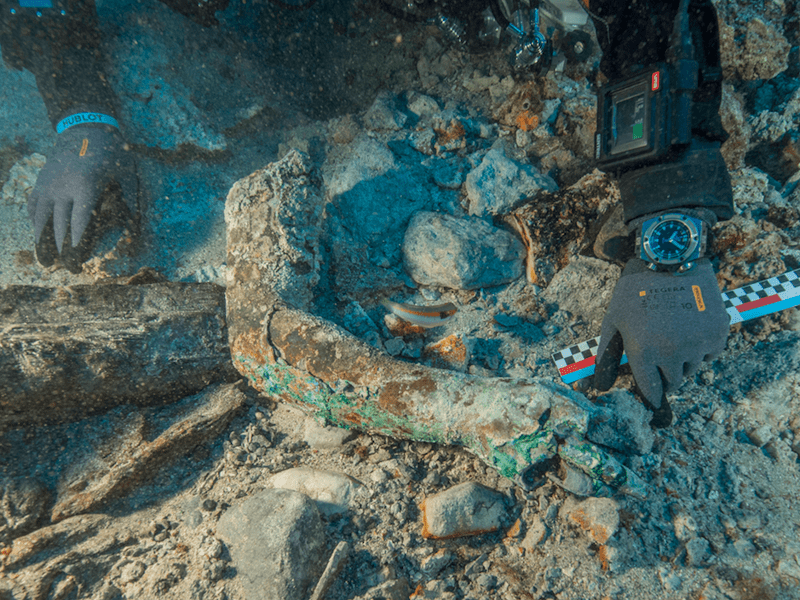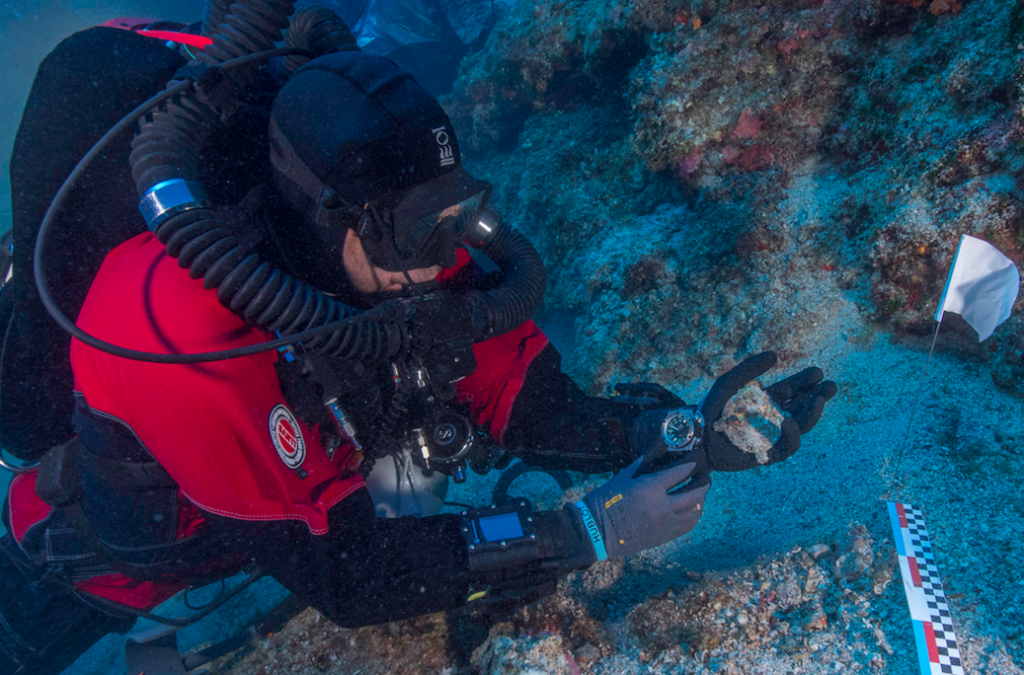A wealth of treasures brought to light from the Antikythera Wreck

The infamous Antikythera Shipwreck and the mysterious yet impressive Mechanism recovered from it tend to inspire modern scientists as well as archeologists, even though it has been more than 100 years since its discovery by Greek seamen.
Last month a remote-control drone submarine operating for multiple uses at the sea of Antikythera was used to uncover more of the wrecks well-hidden secrets. For the third consecutive year, the Ephorate of Underwater Antiquities conducted an underwater excavation at the site of the Antikythera Shipwreck.
The expedition lasted from September 4th to September 20th and was carried out successfully under particularly favourable weather conditions, which helped the marine archeologists bring to light spectacular findings.
The underwater excavation was held in the same area where skeletal remains were discovered in 2016 along with more parts of the wrecked ship.
In particular, the archeologists recovered a bronze arm, while they appear confident that the remains of at least seven more priceless statues from the classical world also lie buried.
The encrusted and stained green right arm was discovered under half a meter of sediment where the ship, believed to have been sailing from Asia Minor to Rome, and its cargo rest for centuries.
Along with the bronze made arm, they also discovered marble statue pieces, a sarcophagus lid, a mysterious bronze disc decorated with a bull, a section of pleated clothing from statues, and compacted metal objects that have yet to be cleaned, all buried under large boulders presumably following an earthquake.

It should be noted that the operation, carried out by a project team from the Greek Ephorate of Underwater Antiquities and Lund University scientists, is overseen by Ageliki Simosi, director of the Greek Ephorate of Underwater Antiquities, a department within the Greek Ministry of Culture responsible for all underwater archaeology in Greece. According to a statement issued on Wednesday by Greece’s Culture Ministry, some of the items have not yet been recovered from the site and will be closely investigated during a future excavation.
The Antikythera wreck is a Roman-era shipwreck dating from the 1st Century BC and was discovered in 1900 by Greek sponge divers in 50 meters of water.
Archaeologists have since brought to light rich archeological treasures of great significance, among which a remarkable device, known as the Antikythera Mechanism, which is regarded as the world’s oldest known analog computer used to predict astronomical positions and eclipses for calendar and astrological purposes.
The wreck is characterised as the source of the most extensive and exciting ancient cargo ever found.

